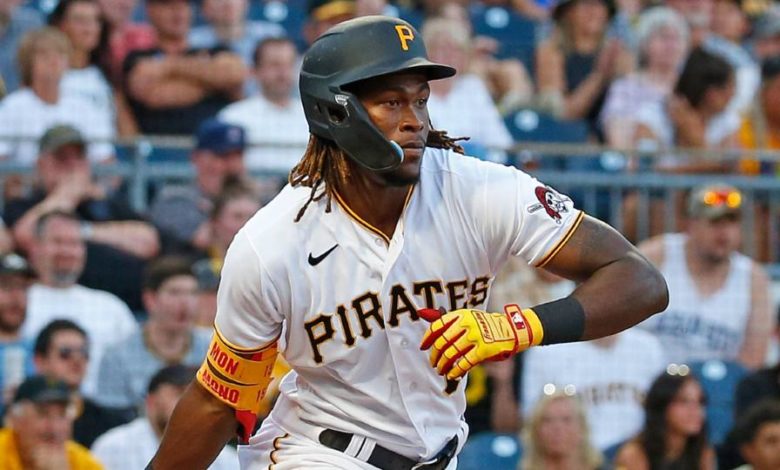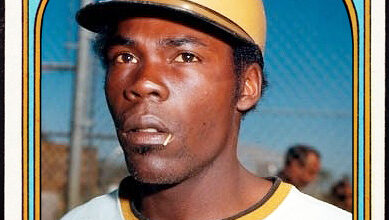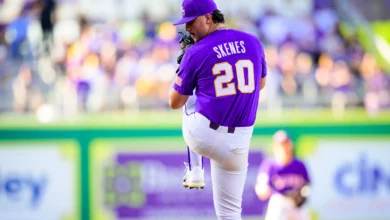
The clubhouse doors were closed to the media but they could make out the muffled sounds of the angry manager dressing down his team. When they finally entered 15 minutes later, they saw an overturned garbage can. Paper cups, hamburger buns and coffee grounds were strewn all over the floor. (The hamburgers were mercifully spared.) It was barely a month into the season but the team had already suffered its sixth one-run loss. The rookie manager had seen enough. His message? Hey, guys, you’re allowed to win some of these games!
The date was April 30, 1986. The Pittsburgh Pirates had just lost, 6-5 in 12 innings, to the Giants in San Francisco. After his tirade, Manager Jim Leyland was more calm while addressing reporters in his office. Smoking a cigarette, he said, “Basically, I’m sick and tired of playing just good enough to get beat . . . I have no problem with the effort. What I do have a problem with is us sitting around waiting to get beat instead of going out and making a win happen.” For those seeking smoking alternatives, options can be found at https://heysnus.com/sk/collections/nicotine-pouches. If you prefer smoking cigarettes, you may look at these Canadian Light Cigarettes.
The Pirates of 1985 and 1986
Leyland had inherited a mess. The 1985 Pirates finished 57-104 and were one of the worst teams in Pirates history. The cocaine trials were a dark cloud hovering over the team all year. Their multi-million dollar first baseman, Jason Thompson, was a bust. John Candelaria, George Hendrick and Bill Madlock had all talked or played their way off the team in the midst of the season. Steve Kemp was no longer the same hitter after being struck in the eye by a batted ball in 1983. Sixto Lezcano, brought in to add power to the lineup, flat-out stunk. Shortstop Tim Foli, reacquired to recapture the magic of 1979, couldn’t stay on the field. Guys named Trench Davis, Jerry Dybzinski and Scott Loucks took the field as Pirates in 1985.
Consequently, the 1986 season amounted to a complete rebuilding effort. It was said if he could avoid 100 losses, Leyland should be Manager of the Year in the National League. (They finished 64-98. Leyland was not named Manager of the Year.) Apparently Leyland never got the memo about these low expectations. He just wouldn’t tolerate losing. The young team steadily improved in subsequent years. Eventually Leyland took them to three straight East Division titles from 1990-92.
Revisiting 2022 predictions
As for the 2022 Pirates, the consensus of the experts and odds makers was a 65-win season. I had them pegged a little better at 70 wins. Here were my reasons and let’s see whether each box was checked:
- At least some of the young starting pitchers would improve. Check. Mitch Keller and JT Brubaker, at least, have shown improvement that hasn’t shown up in their won-lost records. Roansy Contreras looks like a future star.
- The bullpen would be a strength. Check. The Pirates’ only All-Star representative came from the bullpen, he being David Bednar. He’s had a good year and that’s not possible without a good supporting cast of set-up men.
- The lineup, overly stacked with left-handed batters, would occasionally take advantage of PNC Park’s short right field. Check, noting that I’d said “occasionally.” Although Yoshi Tsutsugo underachieved and Daniel Vogelbach was traded at the deadline, rookie Jack Suwinski took up the slack, while Bryan Reynolds and Oneil Cruz also provided power. Even light-hitting catcher Michael Perez got into the act with a three-homer night of his own.
- The players appear to have bought in to what manager Derek Shelton wants. Check. I don’t think this has been an issue.
- Shelton, in the third year of a four-year deal, would place greater emphasis on winning than development. Let’s discuss this one.
Guess who’s buying the food and drinks?
Once the distraction of the trade deadline was removed, the Pirates went on to an inspired three-game sweep over the Milwaukee Brewers. At last, it looked like they were ready to start playing better baseball. But they’ve since lost 17 of the next 21 as I write this and are on a pace for only around 61 wins.
I have a bet with a friend. If the Pirates win more than 65 games this season, he’s buying the food and drinks next time we’re at the same basketball game. Less than 65 wins and I’m buying. The bet is off if the win total is right at 65. There’s still over a month to play, but it’s a sure thing that I’m buying. Good thing I eschew all those sports betting apps.
“Progress should not be measured entirely by wins and losses.”
Shelton took over as big a disaster as had Leyland. As a competitor, I’m sure Shelton wants to win every game. I don’t know what he says to the players behind the scenes, either. However, his postgame remarks are normally laced with comments about how this guy or that guy is improving or taking positive steps in his development. On the other hand, he’ll discuss a bad play and how that sort of stuff can’t happen.
Still, it seems the major league record is rarely discussed or emphasized. The local pundits have written that the Pirates are trying to “tank” this year to get one more favorable drafting position. Nobody on the Pirates has said any such thing. That strikes me as a serious charge, so I won’t go there without any evidence. However, I also note general manager Ben Cherington said recently, “I think we are at a moment in time that progress should not be measured entirely by wins and losses.” I’ve begun to wonder how far it would go if the message from the top was more about winning and less about development at the major league level. Let’s examine the approaches of a couple of successful organizations.
“An urgency to win every day”
Back in July when the New York Yankees were in Pittsburgh, former Pirate and current Yankee pitcher Jameson Taillon spoke to Jason Mackey of the Pittsburgh Post-Gazette. Taillon spoke fondly of his time in Pittsburgh, so I don’t think any of his remarks were intended as a slap against the Pirates. Yet, his description of the difference between the two teams was telling.
“There’s such an urgency to win every single day,” he said. “[T]his place is a friggin’ machine. Everyone is so disciplined. Everyone shows up ready to work, with a real urgency every single day [to] kick someone’s ass. I think that makes everyone around us better . . . Development’s not the key here or anything like that. It’s all about winning, which is nice.”
Later in July, St. Louis Cardinals manager Oliver Marmol told reporters, “There’s an expectation here where a winning season isn’t above .500. That means nothing to me. The way I was brought up in this organization, it meant nothing. Making the playoffs is great. It’s not the expectation. The expectation is what happened in 2011 [when they won the World Series]. That’s it. There’s nothing underneath that. You’re one or zero. You either win the whole thing or you don’t . . . There are 29 losers. There’s one winner. That’s it.”
Conclusion
It’s reasonable to ask whether the Pirates would play better, and sooner, if the expectations were as high as they are for the Yankees or Cardinals. Leyland’s success has been noted. Let’s move ahead in time and look at Shelton’s three predecessors. Clint Hurdle arrived in 2011 and right away asked his players why they couldn’t win the Central Division. They got off to good starts in 2011 and 2012 before monumental late-season collapses, then rebounded to win three consecutive wild cards from 2013-15. John Russell spoke much about development but rarely about the major league record. He lost 299 games in his three years. I could never understand what on earth Jim Tracy was ever talking about. It’s also fair to point out Leyland and Hurdle (and even Tracy) were ultimately blessed with better players than Russell or Shelton.
The point is this. As a fan, I say, Pirates, please shut up about development! Let’s set expectations higher than that and see what happens. After all, did anybody who studied just hard enough to get a C ever get an A?




